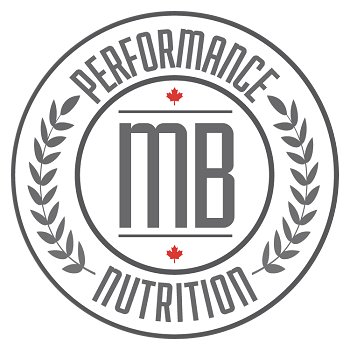Last updated on January 8th, 2025
Caffeine is sometimes called “the world’s most popular drug”.
It’s a very common naturally-occurring stimulant found in coffee and other foods/drinks.
Its main effect is on the brain, helping to increase alertness and reduce fatigue. It’s also in sports training.
And it is safe and effective for these purposes…to a certain extent.
Let’s hash out the details of the benefits (and risks) of caffeine for sports training. We’ll also touch on caffeine supplements, coffee, and energy drinks.
Caffeine
Caffeine is the most widely used stimulant in the world. About 80% of the world drinks a caffeinated beverage every day, mostly as tea or coffee. In fact, it’s a natural compound that has been used for thousands of years.
Caffeine reduces fatigue and enhances mental alertness and concentration. And it can also improve physical endurance.
Caffeine is found in coffee, tea, chocolate, soft drinks, and energy drinks. It is also added to some medications and supplements.
Caffeine supplements are approved in Canada to:
- Helps (temporarily) to:
- promote alertness and wakefulness,
- enhance cognitive performance,
- relieve fatigue,
- promote endurance,
- enhance motor performance.
- Used (temporarily) as a mild diuretic.
These are at doses of 100-200 mg every 3-4 hours as needed. And these doses have shown benefits for sports training.
Caffeine and Sports Training
Caffeine has several uses in sports training. It has been shown to reduce fatigue and increase power output (i.e. for weight training). It can also increase training volume (the overall work performed during a workout).
A strong study (meta-analysis of 40 double-blind placebo-controlled studies) looked at the effects of caffeine on three kinds of exercise: endurance, graded, and short-term. The results showed that caffeine improves endurance exercise the most.
Caffeine delayed the time-to-exhaustion.
Most of the endurance studies looked at running, cycling and cross-country skiing.
The average improvement for endurance has been shown to be 3.2%, up to 4.9%.
In terms of sustained high-intensity exercise (i.e. 1-20 min running, cycling, swimming, and rowing), caffeine helps to improve these as well. Sounds promising for OCR athletes!
A 2019 umbrella review of 21 published meta-analysis examined the effects of caffeine on exercise performance.
The results showed that the magnitude of the effect of caffeine is generally greater for aerobic as compared with anaerobic exercise. They recommended that more primary studies should be conducted among women, middle-aged and older adults to improve the generalisability of the findings.
But what about hydration?
In terms of hydration, studies show that ergogenic (enhancing physical performance) doses of caffeine don’t dehydrate. It doesn’t change sweat rates, urine losses, or other indicators of hydration.
This means that you don’t need to drink more fluids because of your (moderate) caffeine intake.
When should I take it?
It seems that the ideal time to take caffeine is about one hour before you need it. It has also been effective when used during exercise, or after the onset of fatigue. The exercise benefits can last for several hours after caffeine is ingested.
How much should I take?
When it comes to optimal dosing, more research is needed. The consensus seems to be 6 milligrams per kilogram of body weight, but it’s not known whether less or more would work differently. There is also research lacking on optimal dosage form. Most research studies use capsules, but there are a lot more ways to take caffeine besides that, and there isn’t much evidence directly comparing them.
More research is also needed on whether caffeine affects trained and untrained people differently and on whether people get habituated to caffeine’s ergogenic effects over the long term.
Taking doses much more than recommended doesn’t seem to further improve performance. Higher doses may also start to impair performance, along with the usual jitters and increased heart rate.
Caffeine From Coffee and Energy Drinks
Coffee, often referred to as liquid gold, is the most popular source of caffeine in North Ameria.
Of course, coffee is only about 2% caffeine and has many other compounds in it. One 150 mL cup of coffee can have between 40-180 mg of caffeine, while the same amount of tea can have 24-50 mg. Soda pop has even less, and cocoa products even less than that.
Many studies have had mixed results when it comes to coffee’s effects on exercise performance. However, a study published in 2013 showed that a cup of caffeinated coffee had the same effect on cyclists as a caffeine supplement did. And both of these caffeine sources worked better than either the decaf coffee or placebo.
The authors of the umbrella review concluded that coffee will likely boost performance as long as athletes are drinking as many cups of coffee as it takes to dose around 3-6 milligrams of caffeine per kilogram of body weight about an hour before performance time.
The use of coffee is less controversial than the use of a caffeine supplement, so its a preferred option for many athletes. It’s also more enjoyable to taste and smell a fresh cup of coffee compared to taking a supplement.
What about energy drinks?
Along with vitamins, minerals and carbs, taurine is also added to caffeine-containing energy drinks. Taurine is an amino acid (from protein) that is naturally found in the body. It is thought to have anti-inflammatory and antioxidant properties. It’s added to these drinks to help improve cognitive and physical performance, but there is little research on this.
However, a more recently published (February 2017) review of 34 studies looked at the effect of energy drinks on sports performance. It showed improvements in muscle strength, endurance, jumping, and sport-specific actions (but not sprinting). The results of this study concluded that these benefits were from the taurine in those drinks, and not the caffeine. The people in these studies were young and trained, so it is not known if or how this may apply to people who are older or less fit.
Caffeine Safety
Caffeine is widely consumed around the world, mostly in drinks. It is generally recognized to be safe. High doses (over 400 mg) have been related to side effects such as increased blood pressure, anxiety, heart palpitations, headache and dizziness.
Caffeine supplements approved in Canada come with the following warnings:
- Consult a health care practitioner prior to use if you are taking lithium, if you have high blood pressure, glaucoma, and/or detrusor instability (overactive bladder syndrome).
- Consumption with natural health products (e.g. bitter orange extract, synephrine, octopamine, ephedra) or other drugs (e.g. ephedrine) which increase blood pressure is not recommended.
- Consumption with other caffeine-containing products (e.g. medications, coffee, tea, colas, cocoa, guarana, maté) is not recommended.
- This product is not intended as a substitute for sleep.
- For doses greater than 300 Milligrams per day: Consult a health care practitioner if you are of childbearing age, pregnant or breastfeeding.
- For doses greater than 600 Milligrams per day: Caffeine may cause anxiety, tachycardia (rapid heart rate), palpitations, insomnia, restlessness, nervousness, tremor and headache.
- Hypersensitivity/allergy is known to occur, in which case, discontinue use.
Summary
- Caffeine is a natural stimulant, and is “the world’s most popular drug”.
- It’s in coffee, tea, chocolate, energy drinks, and some supplements and medications.
- Doses of 100-200 mg help to improve thinking, fight fatigue, and promote endurance and performance.
- Studies show that endurance can be improved by up to 5% with caffeine.
- The best time to take caffeine is about one hour before you need it.
- Coffee may have the same effect as supplements.
- Energy drinks with taurine may help sports performance.
- Caffeine can have side effects such as increased blood pressure, anxiety, and insomnia. It may also interact with some medications and medical conditions.
I have never used a straight caffeine supplement, however, I have used sports performance supplements containing caffeine in the past. I’ve also never recommended a caffeine supplement to a client. As you know, I am a big fan of whole foods over supplements whenever possible, so I would much rather drink a cup of coffee or a shot of espresso before a workout or race if I need it.
As I’ve also previously discussed, many supplements come with a ton of fillers, artificial flavours, artificial colours and artificial sweeteners that I am not a fan of.
I generally avoid using “pre-workouts” for the reasons listed above. You should also note that many of these products will have fine print on the label that tells you not to use them for longer than 4 weeks without consulting a doctor. Yet, I see people downing this stuff at the gym 1-2 times per day with no end in sight.
References:
Caine, J.J. & Geracioti, T.D. (2016). Taurine, energy drinks, and neuroendocrine effects. Cleve Clin J Med. 83(12):895-904. doi: 10.3949/ccjm.83a15050. LINK: http://www.mdedge.com/ccjm/article/120413/adolescent-medicine/taurine-energy-drinks-and-neuroendocrine-effects
Doherty, M. & Smith, P.M. (2004). Effects of caffeine ingestion on exercise testing: a meta-analysis. Int J Sport Nutr Exerc Metab. 14(6):626-46. LINK: https://www.ncbi.nlm.nih.gov/pubmed/15657469/
Examine.com, Supplements, Caffeine. Accessed March 11, 2017. LINK: https://examine.com/supplements/caffeine/
Examine.com, NERD Mini: The State of the Evidence for Caffeine’s Effect on Exercise Performance. Accessed July 22, 2020.
Ganio, M.S., Klau, J.F., Casa, D.J., Armstrong, L.E. & Maresh, C.M. (2009). Effect of caffeine on sport-specific endurance performance: a systematic review. J Strength Cond Res. 23(1):315-24. doi: 10.1519/JSC.0b013e31818b979a. LINK: https://www.ncbi.nlm.nih.gov/pubmed/19077738
Grgic J, Grgic I, Pickering C, Schoenfeld BJ, Bishop DJ, Pedisic Z. Wake up and smell the coffee: caffeine supplementation and exercise performance-an umbrella review of 21 published meta-analyses. Br J Sports Med. 2020;54(11):681-688. doi:10.1136/bjsports-2018-100278 LINK: https://pubmed.ncbi.nlm.nih.gov/30926628/
Health Canada, Natural Health Products Ingredients Database, Caffeine. Accessed March 9, 2017. LINK: http://webprod.hc-sc.gc.ca/nhpid-bdipsn/monoReq.do?id=53&lang=eng
Health Canada, Natural Health Products Ingredients Database, Ephedrine. Accessed March 11, 2017. LINK: http://webprod.hc-sc.gc.ca/nhpid-bdipsn/monoReq.do?id=271&lang=eng
Heckman, M. A., Weil, J. & De Mejia, E. G. (2010), Caffeine (1,3,7-trimethylxanthine) in Foods: A Comprehensive Review on Consumption, Functionality, Safety, and Regulatory Matters. Journal of Food Science, 75: R77–R87. doi:10.1111/j.1750-3841.2010.01561.x LINK: http://onlinelibrary.wiley.com/doi/10.1111/j.1750-3841.2010.01561.x/full
Hodgson, A.B., Randell, R.K. & Jeukendrup, A.E. (2013). The metabolic and performance effects of caffeine compared to coffee during endurance exercise. PLoS One. 8(4):e59561. doi: 10.1371/journal.pone.0059561. LINK: https://www.ncbi.nlm.nih.gov/pmc/articles/PMC3616086/
Jeukendrup, A. E., & Gleeson, M. (2019). Sport Nutrition (3rd ed.). Champaign, IL: Human Kinetics.
Jówko E. Antioxidants in Sports Nutrition. Chapter 8: Green Tea Catechins and Sport Performance. © 2015 by Taylor & Francis Group, LLC. Bookshelf ID: NBK299060 PMID: 26065095 LINK: https://www.ncbi.nlm.nih.gov/books/NBK299060/
Nehlig, A. & Debry, G. (1994). Caffeine and sports activity: a review. Int J Sports Med. 15(5):215-23. LINK: https://www.ncbi.nlm.nih.gov/pubmed/7960313/
Souza, D.B., Del Coso, J., Casonatto, J. & Polito, M.D. (2017). Acute effects of caffeine-containing energy drinks on physical performance: a systematic review and meta-analysis. Eur J Nutr. 56(1):13-27. doi: 10.1007/s00394-016-1331-9. LINK: https://www.researchgate.net/publication/309281522_Acute_effects_of_caffeine-containing_energy_drinks_on_physical_performance_a_systematic_review_and_meta-analysis
Spriet, L.L. (2014). Exercise and Sport Performance with Low Doses of Caffeine. Sports Med 44(Suppl 2): 175. doi:10.1007/s40279-014-0257-8 LINK: https://link.springer.com/article/10.1007%2Fs40279-014-0257-8


